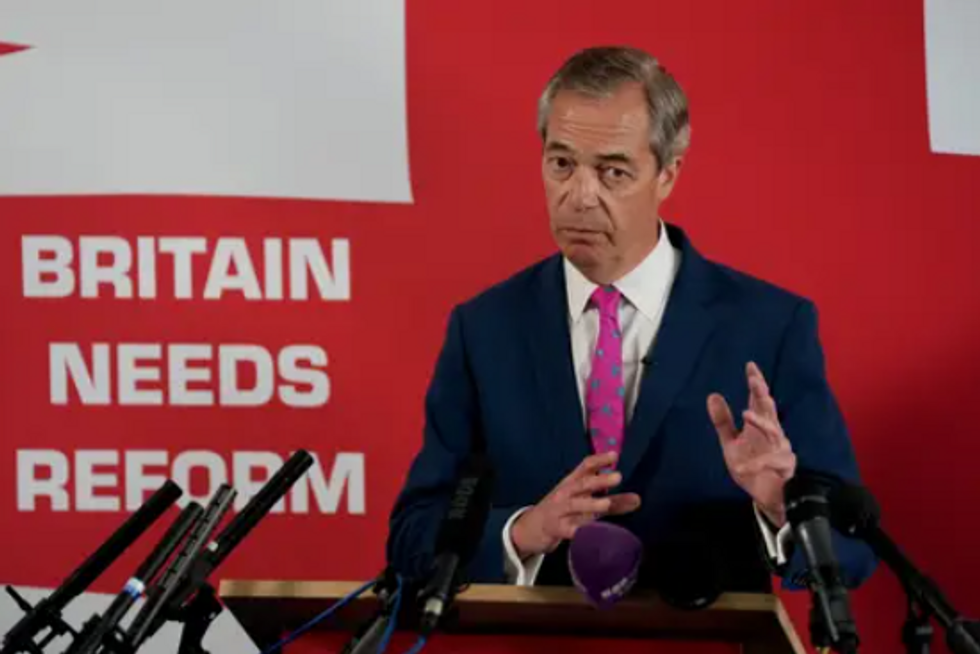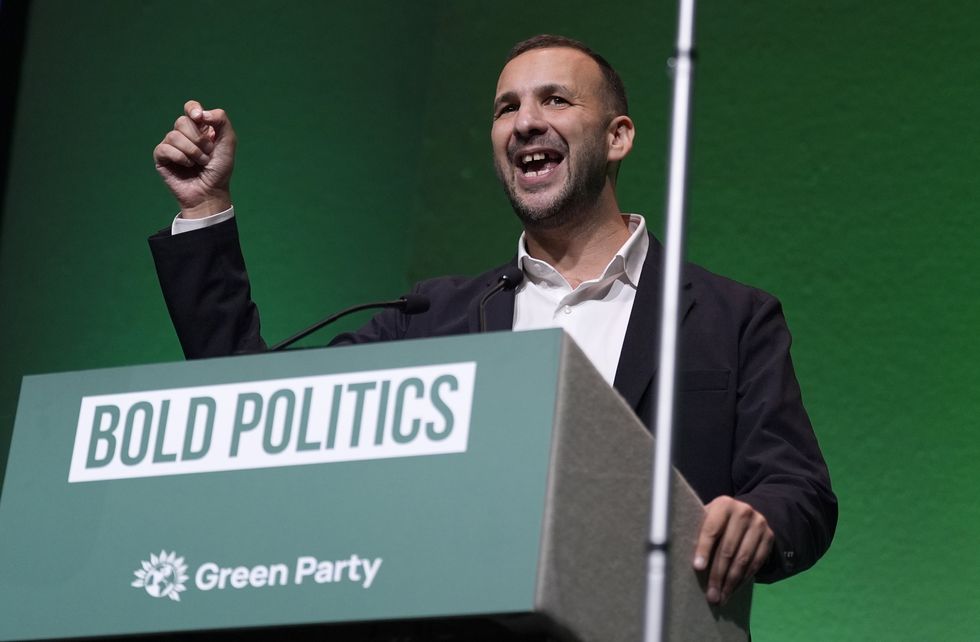Anyone pondering the question of how British politics might unfold in the coming months and years ought perhaps to look across the Irish Sea.
For the way in which the political contours in Northern Ireland have shifted so dramatically in the past couple of decades may hold some clues as to what might be happening on this side of the water.
The province saw a sharp realignment in its politics – one that few had predicted – as a consequence of the two biggest parties, the Ulster Unionist Party (UUP) and Social Democratic and Labour Party (SDLP), forfeiting the support of many of their core voters and being supplanted by more radical alternatives.
Regarded as the “moderates” on either side of the political and cultural divide, the UUP and SDLP found that their traditional supporters were not as loyal to them as they had assumed.
In the years following the ratification of the Good Friday Agreement, and for all the turbulence and sectarianism that still blighted this corner of the United Kingdom, many voters felt that things had become too cosy at the centre, that the two main parties no longer sufficiently represented the interests of their respective communities – almost as if, in spite of the everyday political rancour that still marked its politics, the province was governed by something resembling a uniparty.
And so these voters ended up in each case looking for an alternative. Step forward the Democratic Unionist Party (DUP) to become the main force on the unionist side and Sinn Fein the nationalist one.
Since replacing their once-mightier rivals, these parties have consolidated their position as the dominant players in the province.
I am not close enough to Northern Ireland politics to know whether or not voters were correct to feel the sense of discontent they did, and to throw in their lot with more, dare I say, “populist” alternatives. teresting.

But it certainly shows how quickly things can change when established parties lose sight of their mission and take loyal voters for granted.
I think it is distinctly possible that we are witnessing a similar phenomenon occurring now across mainland Britain, with voters on Left and Right, and everything in between, looking for more “populist” alternatives to the main parties.
Both Labour and the Tories are holed beneath the waterline in the polls, rarely scoring above 40 per cent between them – a remarkable state of affairs for two parties that have dominated the British political landscape for so many generations.
Meanwhile, Reform is surging, and the Green Party, buoyed by – for all his faults – an ebullient new leader and a slick media operation, are steadily increasing their popularity.
LATEST DEVELOPMENTS
- GB News has crunched the numbers, here’s the exact date Reform’s membership will overtake Labour’s
- I hold no truck with Graham Linehan’s views but police had no interest arresting him – Nigel Nelson
- Labour wants to have it both ways on China, but this ignores an inconvenient truth – John Redwood

Perhaps it will all prove to be a blip, but I wouldn’t bet on it. With things playing out the way they are, it is not at all far-fetched to suggest that Labour may find itself supplanted in the long run by the Greens and the Tories by Reform.
Should the Greens enter some sort of alliance with Jeremy Corbyn’s Your Party (assuming the latter gets its act together at some point), there may be an even greater repository for the votes of disaffected Leftists.
Why is this all happening? Simple. The status quo has failed. Our country is slowly undeveloping; everyone knows it.
The economy is shattered, public services are broken, our borders are being overrun, and our infrastructure is in a state of disrepair. We don’t build anything, and we don’t make anything. Meanwhile, there is a deepening sense of social disintegration in our communities.

The air of decline permeates our land, and with it comes an increasing awareness that if radical change – of the economic, social and cultural kind – doesn’t come about quickly, it may be too late.
Large numbers of voters are desperate for that change. Their desire is breaking out in many directions.
Some look to Reform because they believe the British economy needs Thatcher-style shock treatment; others for the party’s tough stance on immigration and wokery. Some sway to the Greens and Your Party for their promise to tackle the grotesque injustices of the capitalist system; others for their unapologetic adherence to “progressive” values.
Just as they did with Brexit, the voters are firing a torpedo through our political system.

We are witnessing the latest salvo in the ongoing rebellion against the bankrupt liberal-centrist order. The political realignment will gather pace, and the polarisation we have experienced in our country over the past decade will sharpen and intensify.
As events in Northern Ireland proved, no party – not even ones that have dominated the political scene for so long – are immune from the wrath of the voters.
Sometimes the collapse is quick and unexpected. Throw in the flags and rise of communal sectarianism, and the overlap between politics in Britain and the province becomes starker yet.
Things may be about to get very interesting.
Our Standards:
The GB News Editorial Charter







Follow